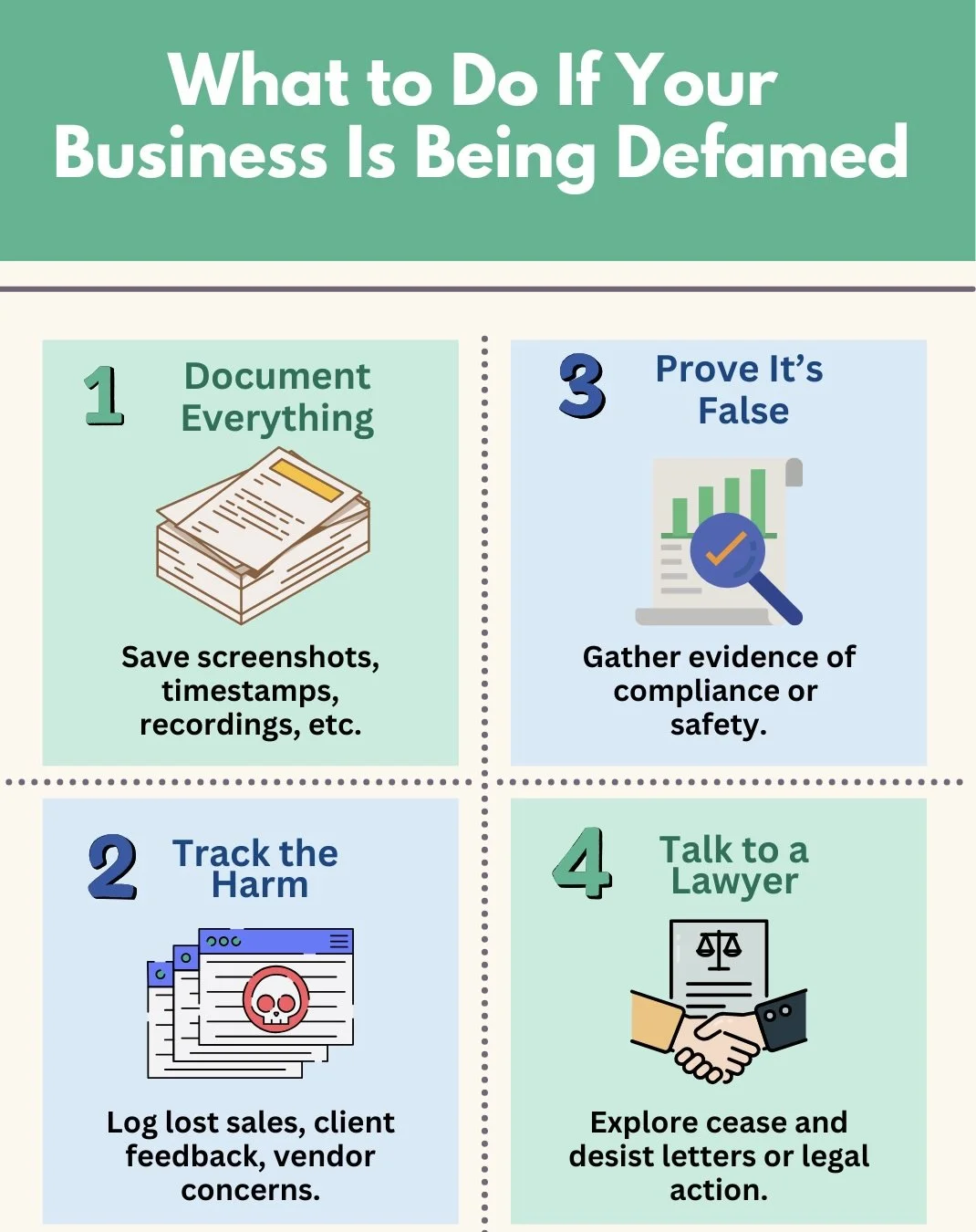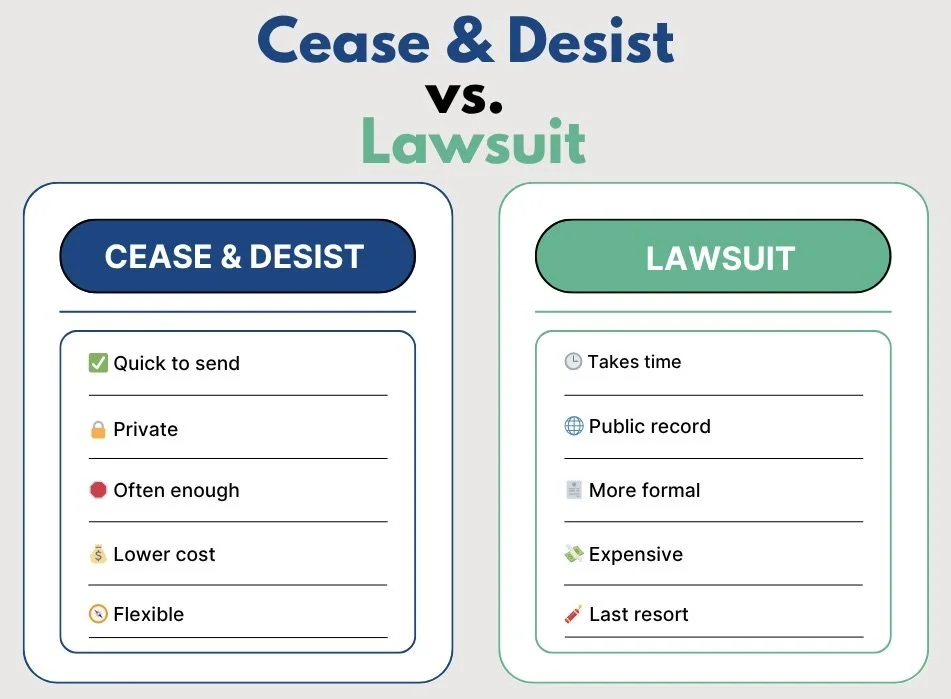Dealing with Business Defamation and Trade Libel
Business defamation or trade libel occurs when someone makes false statements about your company’s products or services. Some examples include:
False online reviews or advertisements,
Accusations of illegal activities, or
Claims of unsafe products.
If you feel that your business is being harmed by false statements that are being communicated to the public, there are certain steps you can take to protect your legal rights.
Start by documenting and saving all available information. Save copies of the statements you think are defamatory. For online ads, save screenshots with time-stamps. For TV or radio ads, try to save copies of recordings. Begin documenting any ways in which the statements are harming your business: for example, if your sales are dropping or you’re being contacted by vendors or customers who’ve heard the defamatory statements, keep track of that information to help build your case. Harm to your company’s reputation or standing in the community may be hard to quantity in terms of monetary damages, but courts consider this type of harm as well – if you receive feedback about defamatory statements showing that the statements are impacting the way people view your business, that can support your claim, even if it does not immediately connect to your company’s profits.
🎯 Act quickly to limit the damage and strengthen your legal position.
Also, start gathering information to show that the statements are false. If someone has accused your business of illegal activities or unsafe products or services, compile information demonstrating your compliance with any applicable regulations.
Consult with legal counsel to discuss all available options as soon as possible. If your company’s reputation is being threatened, it’s important to move quickly to seek a solution. A lawsuit may not always be the first step depending on the facts of your situations: sometimes claims can be resolved with a cease and desist letter. An attorney can also help guide you on what other information you should gather to support your claims, as well as any legal defenses the possible defendant may seek to rely on (such as free speech protections).
✳️ A lawyer can help you decide which path makes sense.
It’s also important to ensure that your own advertising does not run afoul of defamation laws. Make sure statements about your company’s products and services are truthful, and be mindful of avoiding misleading statements about a competitor’s products or services (for example, in the context of comparisons with a competitor’s features and pricing).


